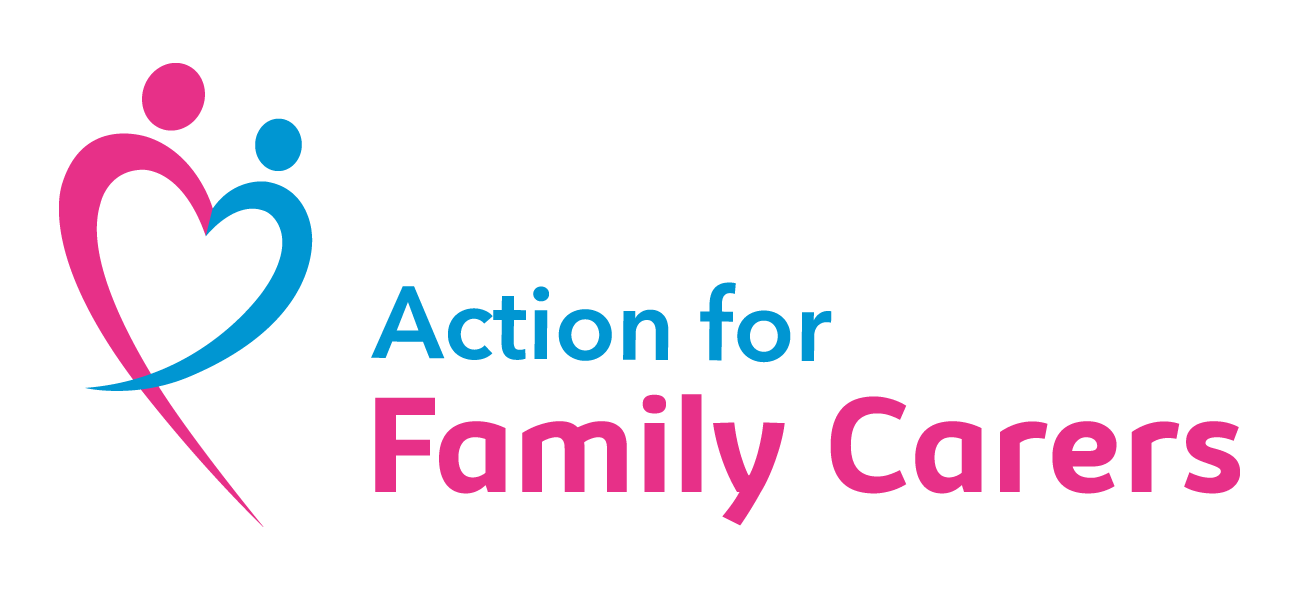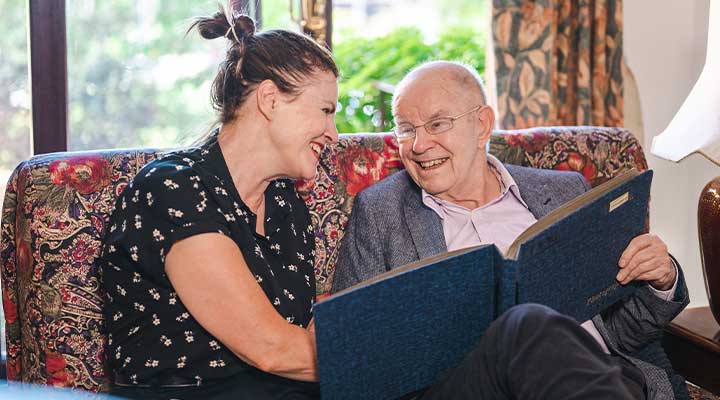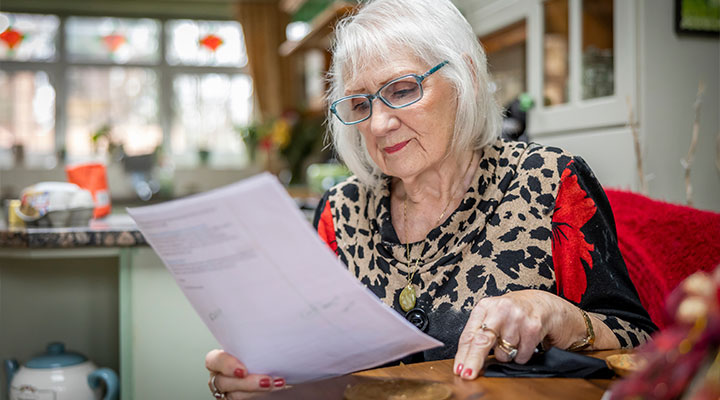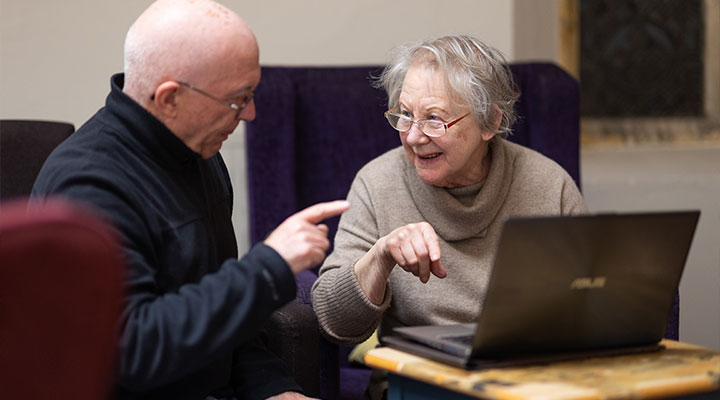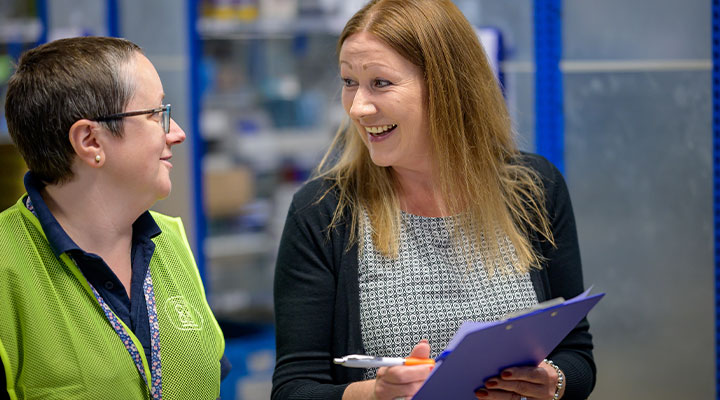Being a Carer can affect your financial situation so it is important to understand what benefits and financial support might be available to you. Caring can lead to additional costs and you might have to reduce your hours at work or give up your job. This can be a worry but there might be support out there for you.
There are a variety of benefits you might be able to claim as a Carer. But you should be aware that they can impact on other benefits you might be claiming such as Universal Credit.
There are a range of benefits that the person you care for might be able to claim. As a Carer, if the person you’re caring for receives benefits, you may be eligible for Carer’s Allowance or Carer’s Credit. You could take a look at the Mobilise Financial Checklist or contact your local Citizens advice for benefits advice.
You may also be able to apply for:
- support from your local council
- Council Tax Reduction
- Pension Credit if you are over working age.
- Grants and bursaries to help pay for courses and training.
- Income Support (if you get the severe disability premium and you are on a low income)
- Income-based Employment and Support Allowance (if you get the severe disability premium and you cannot work)
What benefits could I claim?
Carer's Allowance
Carer’s Allowance is the main benefit available for carers. It is a benefit paid by the UK Government, directly to your bank account, building society or credit union account.
You could get £81.90 a week if all the following apply:
- You are aged 16 or over
- You spend at least 35 hours a week caring for somebody with a disability
- You are not in full-time education
- You are not studying for more than 21 hours per week
- You’ve been in England, Scotland or Wales for at least 2 of the last 3 years (this does not apply if you’re a refugee or have humanitarian protection status)
- You normally live in England, Scotland or Wales, or you live abroad as a member of the armed forces (you might still be eligible if you’re moving to or already living in an EEA country or Switzerland)
- You’re not subject to immigration control
- Your earnings are £139 or less a week after tax, National Insurance and expenses
The person you care for needs to be in receipt of one of the following disability benefits:
- Personal Independence Payment – daily living component
- Disability Living Allowance – the middle or highest care rate.
- Attendance Allowance
- Constant Attendance Allowance at or above the normal maximum rate with an Industrial Injuries Disablement Benefit
- Constant Attendance Allowance at the basic (full day) rate with a War Disablement Pension
- Armed Forces Independence Payment
- Child Disability Payment – the middle or highest care rate
You do not have to be related to, or live with, the person you care for. You do not get paid extra if you care for more than one person. If someone else also cares for the same person as you, only one of you can claim Carer’s Allowance.
You cannot get the full amount of both Carer’s Allowance and your State Pension at the same time. If your pension is £76.75 a week or more, you will not get a Carer’s Allowance payment. If your pension is less than £76.75 a week, you will get a Carer’s Allowance payment to make up the difference. If your State Pension is more than £76.75 a week, you will not get a Carer’s Allowance payment, but your Pension Credit payments will increase instead.
Carer’s Allowance can affect the other benefits that you and the person you care for get. You have to pay tax on it if your income is over the Personal Allowance threshold. For each week you get Carer’s Allowance you will automatically get National Insurance credits.
Use Mobilise’s free Carers Allowance checker tool to see if you are eligible.
You can apply online for Carer’s Allowance and find out more, through the Government’s website.
Carer's Credit
You could get Carer’s Credit if you are caring for someone for at least 20 hours a week.
Carer’s Credit is a National Insurance credit that helps with gaps in your National Insurance record. Your State Pension is based on your National Insurance record. Your income, savings or investments will not affect eligibility for Carer’s Credit.
If you are eligible for Carer’s Credit, you can get credits to help fill gaps in your National Insurance record. This means you can take on caring responsibilities without affecting your ability to qualify for the State Pension.
To get Carer’s Credit you must be:
- aged 16 or over.
- under State Pension age
- looking after one or more people for at least 20 hours a week
The person you are looking after must get one of the following:
- Disability Living Allowance care component at the middle or highest rate
- Attendance Allowance
- Constant Attendance Allowance
- Personal Independence Payment daily living part
- Armed Forces Independence Payment
- Child Disability Payment (CDP) care component at the middle or highest rate
You will still get Carer’s Credit for 12 weeks if:
- you take a short holiday.
- the person you look after goes into hospital.
- you go into hospital.
Find out more and apply here.
Universal credit
Universal credit is the main benefit for working age people who are on a low income. The ‘Carer element’ of Universal Credit is an additional element of Universal Credit. It’s for people caring for at least 35 hours a week. The person we care for must be receiving certain benefits. You can find out more here.
You can use Turn2Us Benefits calculator to see if you qualify for Universal Credit.
You can start a claim for Universal Credit on the Apply for Universal Credit page of the Gov.UK website
What benefits could the person I care for claim?
Attendance Allowance
Attendance Allowance is available for people who have reached State Pension age and are physically or mentally disabled. It can help with extra costs if the person has extra care needs or needs support to remain independent at home such as a cleaner.
It is paid at 2 different rates; the rate awarded is dependent on the level of care needed because of their disability.
Attendance Allowance is split into two rates:
- The lower rate is £68.10 per week (if the person we care for requires either night or day supervision)
- The higher rate is £101.75 per week (if the person we care for requires both night and day supervision, or has a terminal illness)
Attendance Allowance is not means-tested so what you earn or how much you have in savings will not affect what you get.
You can find out more and download a claim form to print off and send from the GOV.UK Attendance Allowance webpage.
You can also get a claim form by calling the Attendance Allowance helpline on 0800 731 0122 between 8am and 6pm, Monday to Friday.
Attendance Allowance is processed more quickly if the applicant is not expected to live more than 6 months. In these circumstances you should complete an Attendance Allowance claim form and also ask a doctor or medical professional for form SR1 – they’ll either fill it in and give the form to you or send it directly to the Department for Work and Pensions (DWP).
Disability Living Allowance
Disability Living Allowance (DLA) is a benefit that may be available if you’re caring for someone under 16 who has a disability.
To claim DLA for a child you need to be their parent or look after them as if you’re their parent. This includes step-parents, guardians, grandparents, foster-parents or older brothers or sisters.
You can find out more and print off a claim form on the Government website.
Personal Independence Payment (PIP)
Personal Independence Payment (PIP) can help with extra living costs for children and adults aged over 16 years old if the person has:
- a long-term physical or mental health condition or disability
- difficulty doing certain everyday tasks or getting around because of their condition.
- they expect the difficulties to last for at least 12 months from when they started.
PIP can be payable even if the person is working, has savings or in receipt of most other benefits. It is tax free.
There are 2 parts to PIP: a daily living part if they need help with everyday tasks, and a mobility part if they need help with getting around.
How much they will get is dependent on how difficult they find everyday tasks and getting around.
They might get the daily living part of PIP if they need help with:
- eating, drinking or preparing food
- washing, bathing and using the toilet
- dressing and undressing
- reading and communicating
- managing their medicines or treatments
- making decisions about money
- socialising and being around other people.
They might get the mobility part of PIP if they need help with:
- working out a route and following it
- physically moving around
- leaving their home
They do not have to have a physical disability to get the mobility part. They might also be eligible if they have difficulty getting around because of a cognitive or mental health condition, like anxiety.
They must also be under State Pension age if they have not received PIP before.
Personal Independence Payment (PIP) is fast tracked if the applicant is terminally ill.
For more information and to start a claim, visit the government’s PIP page.
What other financial support is available for carers?
Council Tax Reduction
Council Tax Reduction, sometimes known as Council Tax Support, is a way for the council to help people on a low income who might struggle to pay their Council Tax bill.
As a Carer, you may be eligible for a Council Tax reduction. This depends on whether you live in the same house as the person you care for, or separately. If you’re caring for someone with Dementia, or if that person needs to use a wheelchair to get about in your home, they may also be eligible for a Council Tax reduction.
If the person you are caring for classified as having SMI (Significant Mental Impairment) due to suffering from illnesses such as Dementia or Alzheimer’s then you may be able to claim a reduction of up to 25% of your annual council tax bill.
Carers Trust Grants
If you are a Carer, you may be able to apply for a Carers Fund grant as part of a package of support from your local Carers Trust Network Partner. Your local support includes Action for Family Carers and Carers First
As a Carer you may be able to apply for a grant of up to £300 for items or activities that will benefit you in your caring role, for example for:
- Breaks for Carers, with or without the person you care for
- Items for the home including cookers, fridges, beds and washing machines.
- Courses and materials to develop Carers’ skills and personal development.
- Home repairs
- Short-term or time limited replacement care
To see whether you can apply for a grant, contact your local Carers Trust network partner and they will complete an online application form on your behalf.
Turn2us
This is a free service that helps people in financial need to access welfare benefits, charitable grants and other financial help either online, by phone or face to face. The website has a free and easy to use grants search and benefits calculator. Make sure you give as much information as you can so you can find all funds that might be able to help both you and the person you care for. More information can be found at https://www.turn2us.org.uk/
Disability Grants
The Disability Grants website includes a Guide to Grants for the Disabled. This has details of charities and trusts which give out grants to disabled people and their families and carers. https://www.disability-grants.org/
Personal budgets for self-directed support
You may be eligible for financial support which can be used at your own discretion to provide respite for yourself and fund courses and activities which will be beneficial for your health and wellbeing as a carer.
Disabled Facilities Grant
You may also be entitled to a disabled facilities grant to cover adaption of your home to facilitate the mobility of the person you care. Your need will need to undergo a free assessment by an Occupational Therapist.
Where can I get more information?
Citizen’s Advice
For more information on benefit entitlement, how to claim benefits or other financial support, Citizen’s Advice are available for help, support or guidance.
National helpline number: 0800 144 8848
Or us the website to find details of your local Citizen’s Advice Centre at www.citizensadvice.org.uk/about-us/contact-us/
Carers UK
Carers UK have a wealth of information on their website.
